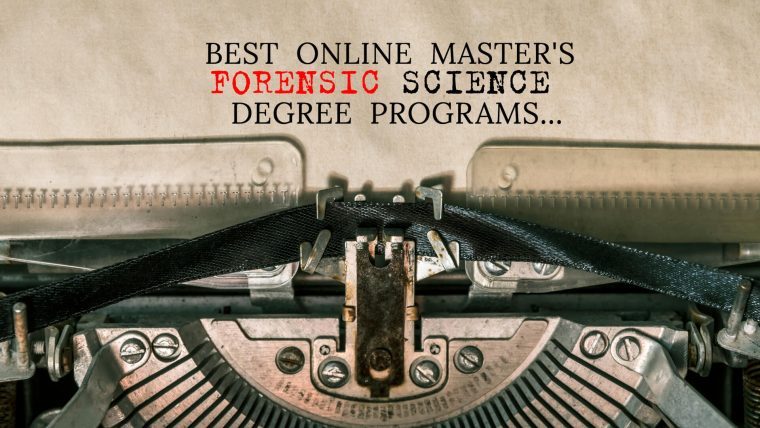| Rank | School | Location |
|---|---|---|
| 1 | Florida International University | Miami, FL |
| 2 | Oklahoma State University | Stillwater, Oklahoma |
| 3 | Penn State World Campus | Centre County, PA |
| 4 | University of Central Florida | Orlando, FL |
| 5 | University of Florida | Gainesville, FL |
| 6 | La Salle University | Philadelphia, PA |
| 7 | Grand Canyon University | Phoenix, AZ |
| 8 | Emporia State University | Emporia, Kansas |
| 9 | Saint Leo University | Saint Leo, FL |
| 10 | Stevenson University | Stevenson, Maryland, and Owings Mills, Maryland |
| 11 | DeSales University | Center Valley, Pennsylvania |
Successful Student has ranked the best Masters in Forensic Science online degrees in the United States.
Successful Student ranks schools for the benefit of students, designed for online master's students to make informed college and degree decisions for getting an online Master's degrees in Forensic Science.
Forensic Scientists work in various capacities, including:
- crime labs
- medical examiner's laboratories
- government agencies
- hospitals
- police departments
- private laboratories
Traditionally, those who work in Forensic Science begin with obtaining a bachelor's in Forensic Science programs, or, alternatively, a natural, biological or physical science.
Forensic scientists need a thorough understanding of fundamental scientific principles (since Forensics is a scientific discipline). Bachelor's degrees provide this foundation.
These Master's program options should help prepare forensic science graduates for the professional world, with core courses in various forensic disciplines.
These include Forensic Science Technician and working for law enforcement agencies as crime scene investigators at crime scenes and at a crime laboratory.
Forensic disciplines according to the American Academy of Forensic Sciences:
- Forensic Anthropology
- Forensic Criminalistics
- Forensic Digital and Multimedia Sciences
- Forensic Engineering and Applied Sciences
- Forensic Jurisprudence
- Forensic Odontology
- Forensic Pathology/Biology
- Forensic Psychiatry and Behavioral Science
- Questioned Documents
- General
- Forensic Toxicology
Certain leadership positions in crime laboratories often require an advanced online Forensic Science degree.
Schools may download our badge.
Do you see any information that is incorrect and needs updating? Please email us at [email protected].
The Best Online Master's in Forensic Science Degrees
Ranking Methodology
This ranking was created using Successful Student's ranking algorithm. This algorithm uses the following data points to calculate a school's ranking placement:
- Retention rate
- Desirability (number of applicants)
- Percentage of students who are fully online
- In-district average tuition for full time graduates
- In-state average graduate tuition
- Academic influence
| Online Graduate College | Ranking Criteria | Weight |
|---|---|
| Retention Rate | 20% |
| Desirability (Number of Applicants) | 20% |
| Graduate Fully Online Enrollment | 10% |
| In-District Average Tuition Full Time Graduates | 10% |
| In-State Average Graduate Tuition | 10% |
| Academic Influence | 30% |
Florida International University
Miami, FL

The International Forensic Research Institute has a dedication to bring scientific research, education and technology to the forefront in the study of forensic science. Faculty experts work with a range of partners to perform research and provide forensic expertise.
Florida International University includes the Center for the Administration of Justice, and the Global Forensic and Justice Center, and the University serves as a member of the Center for Advanced Research in Forensic Science. The Florida International University team includes the National Forensic Science Technology Center.
The Professional Science Master in Forensic Science online degree provides a curriculum in forensic science with coursework in management designed to provide professional development opportunities.
The students have access to laboratory instrumentation and research facilities via their participation in hands-on workshops. The program's final project is a "real-world" internship in a private-sector or public-sector forensic science enterprise.
Students in the Professional Master in Forensic Science online degree program develop professional skills in areas such as expert testimony, communication, forensic science, leadership, business and management.
Credit requirements: 32 credit hours
Selection of required courses:
- Forensic Analysis
- Forensic Biology
- Organizational Behavior
- Forensic Chemistry
- Forensic Chemistry and Analysis of Drugs
- Organization Information Systems
- Forensic Science Leadership
- Intermediate Statistics
- Accounting for Managers
Learning enrollment options: Full-time
Program length: Four Semesters (fall, spring, summer, and fall)
Oklahoma State University
Stillwater, Oklahoma

Oklahoma State University's Center for Health Sciences emphasizes graduate and professional degrees for more than 1,000 enrolled students.
The online Master's in Forensic Sciences degree provides multiple online paths of study.
The School provides an online track emphasis in the following areas: Arson, Explosives, Firearms and Toolmarks Investigation, Forensic Investigative Sciences, and Forensic Science Administration.
Credit requirements: 39 credit hours
Selection of required courses:
- Survey of Forensic Sciences
- Ethical Research and Scientific Writing
- Quality Assurance in Forensic Science
- Criminalistics and Evidence Analysis
- The Law and Expert Evidence
- Forensic Statistics
Learning enrollment options: Part-time or full-time
Program length: Three to four years
Start dates: Fall and spring
Admissions and transfer credit information: Applicants must have a Bachelor's degree. For the AEFTI and FSA tracks, applicants must meet a minimum of one-year professional experience. Applicants must submit official transcripts for evaluation. The admissions team requires three letters of recommendation, standardized test scores, and a statement of purpose detailing academic and professional goals.
Accreditation: OSU's Master of Science in Forensic Sciences degree has accreditation from the Forensic Science Education Programs Accreditation Commission (FEPAC).
Penn State World Campus
Centre County, PA

Penn State World Campus, the online division of Penn State University, offers numerous undergraduate, graduate, and certificate programs.
The National Security Agency and the Department of Homeland Security recognizes Penn State as a National Center of Academic Excellence in Information Assurance Education.
The School recommends the online Master of Professional Studies in Homeland Security with an Information Security and Forensics option for computer and information systems specialists. This degree is a good option, perhaps, for those who seek to move into the public sector of Homeland Security.
The curriculum covers information security and assurance, cyber and network security, cyber threat defense and forensics, security policy development, security audit and compliance, emergency management across multiple venues, and much more.
Credit requirements: 33 credit hours
- Selection of required courses:
- Policies and Programs
- Social and Ethical Issues
- Violence, Threats, Terror, and Insurgency
- Computer and Cyber Forensics
- Information Security Management
- Network Management and Security
- Foundations of Information Security and Assurance
Students complete the program with a capstone research project
Program length: One to two years
Start dates: fall and spring
Admissions and transfer credit information:
Applicants must hold a bachelor's degree in a technical or scientific discipline or must have experience gained through the workforce or profession training in regards to information technologies.
Applicants must submit official transcripts displaying a minimum GPA of 3.0. Students who do not meet the GPA requirements must submit standardized testing scores. The Admissions team also looks for three letter of reference and a professional resume.
Accreditation: Penn State World Campus received accreditation from the Middle States Association of Colleges and Schools.
University of Central Florida
Orlando, FL
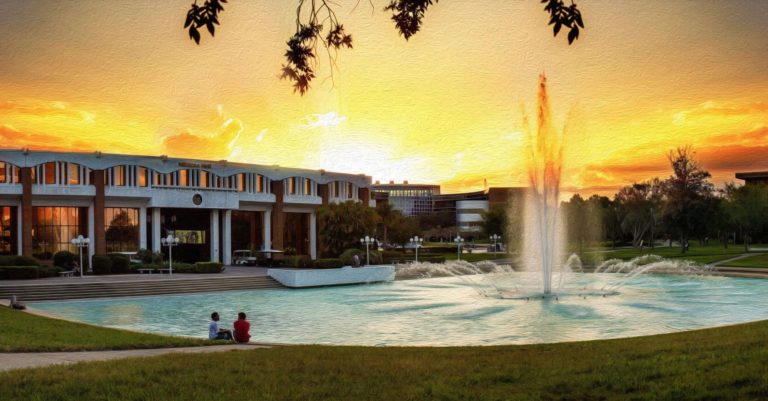
The University of Central Florida's online division offers a wide range of undergraduate and graduate level degrees.
The online Master in Forensic Science program is available, but not limited to, full-time students and current practicing professionals who seek to further their education in forensic science. The online degree includes three paths of study: Forensic Analysis, Forensic Biochemistry, and Forensic Professional.
Credit requirements: 32-34 credit hours
Selection of required courses:
- Topics in Forensic Science
- The Forensic Expert in the Courtroom
- Quality Assurance for Forensic Scientists
Students seeking to fulfill a masters in Forensic Biochemistry and Forensic Analysis degree, must perform original research and defend their own written thesis. A Master's in Forensic Professional does not require a written thesis, however it does require considerable coursework and an independent study capstone project.
Learning enrollment options: Full-Time and part-time
Program length: Two years (full-time)
Start dates: Fall (Two application opportunities- Fall Priority: Jan 15 or Fall: Mar 1)
Admissions and transfer credit information: Students with undergraduate degrees in forensic science, chemistry, biochemistry, physics, and biology are encouraged to apply. Admissions team requires GRE and bachelor's degree prior to admissions.
Applicants must also send all official transcripts from accredited institutions.
Admissions accepts up to six credit hours for transfer applicants if credits are from an accredited institution.
Accreditation: The University of Central Florida has accreditation from the Southern Association of Colleges and Schools Commission on Colleges (SACSCOC).
University of Florida
Gainesville, FL
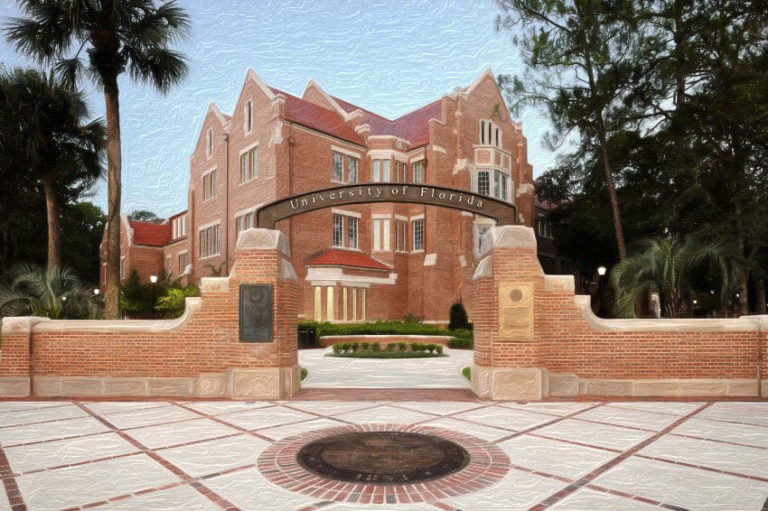
University of Florida's College of Pharmacy is the oldest division in the UF Health Science Center, managing five academic departments and five centers of research and collaboration. The College offers a wide variety of undergraduate and graduate degrees to a diverse student body.
The Master's in Forensic Science online degree specializes in four different sectors of forensic studies: Forensic Science, Forensic DNA and Serology, Forensic Drug Chemistry, and Forensic Toxicology.
The curriculum provides a comprehensive foundation in knowledge and skills directly applicable to the work field.
Credit requirements: 32 credits
Selection of required courses:
- Biological Evidence and Serology
- Natural Medicinal Products
- Forensic Analysis of DNA
- Toxic Substances
Online instruction style: Asynchronous
Learning enrollment options: Full-time or part-time
Program length: Two-three years, students have up to seven years to complete all requirements
Start dates: fall, spring, and summer
Admissions and transfer credit information: Applicants must hold a bachelor's degree in some form of science from an accredited college or university. The University of Florida, College of Pharmacy requires a GPA of 3.0 or greater, Verbal GRE score of 153 or greater, and a quantitative GRE score of 144 or greater.
Accreditation: The University of Florida received accreditation from the Southern Association of Colleges and Schools.
La Salle University
Philadelphia, PA
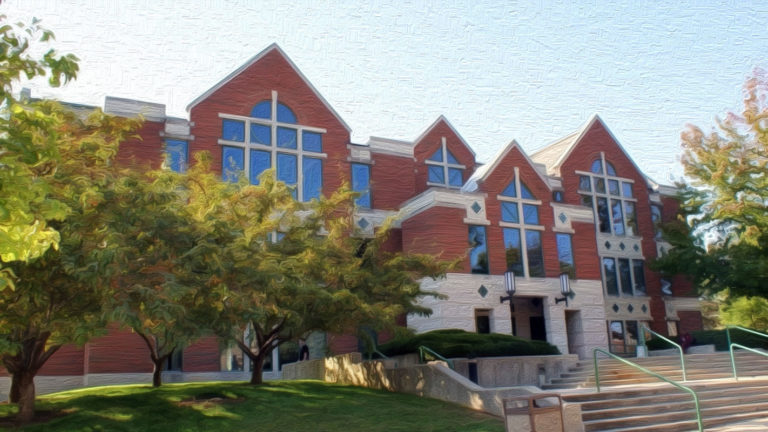
La Salle University, a private, Roman Catholic university, provides traditional, online, and hybrid courses and programs. The University has an affiliation with the Roman Catholic Church through the Archdiocese of Philadelphia.
The online Master's in Economic Crime Forensics program emphasizes areas such as economic crime definition/analysis/prevention, legal/corporate compliance/ethical issues, economic risk analysis/mitigation, and investigative practices/principles/prosecution.
Credit requirements: 36 to 39
Selection of required courses:
- Fraud Examination: Principles and Practice
- Computer and Internet Fraud
- Corporate Ethics and Compliance
- Criminal Justice and Legal Concepts
- Litigation Support Practices and Procedures
- Financial Fraud
- Occupational Fraud
- Information Security
- Leadership Assessment and Evaluation
- Fraud Detection and Prevention: Special Cases
- Capstone Thesis
Online instruction style: Synchronous
Learning enrollment options: Full-time or part-time
Program length: 12 to 14 three credit courses
Start dates: fall, spring, summer
Admissions and transfer credit information: Admissions requires a completed application form including an official transcript from all previous accredited colleges and universities. Candidates must have a baccalaureate degree from an accredited college and or university with a GPA of 3.0 or greater.
Admissions also requires a professional resume and two letters of recommendation from professors at the college level. If an applicant has been "out of school" for two or more years, the University accepts letters of recommendation from current or previous supervisors at the applicant's place of professional employment(s).
Accreditation: La Salle University has accreditation from the Middle States Commission on Higher Education.
Grand Canyon University
Phoenix, AZ
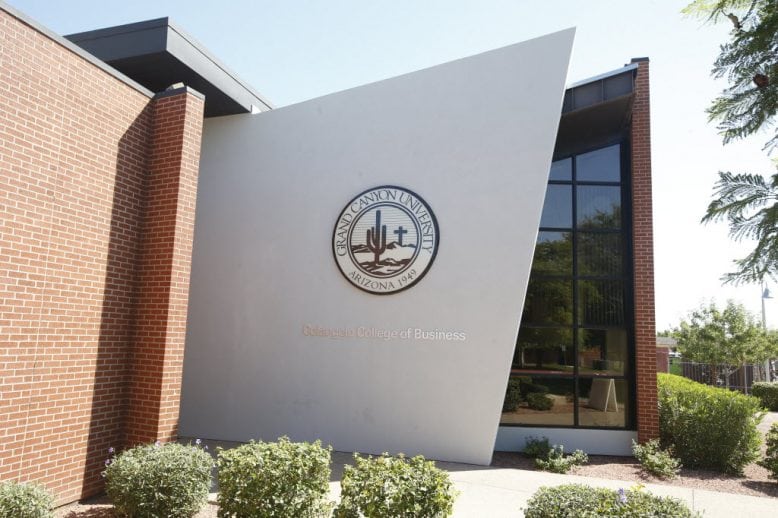
Grand Canyon University is one of the leading universities in America for online education. The online Master of Science in Forensic Science is a popular degree option for working professionals.
The degree is fully online, and consists of 36 credit hours. Though this is a fully online master's degree, online students will still get the benefit of hands-on laboratory experience by using at-home lab equipment in coursework.
Students gain the theoretical knowledge, and the actual hands-on experience of professional Forensic Science practices.
Course selections include:
- Crime Scene Processing and Medicolegal Death Investigation
- General Principles of Drug Chemistry and Forensic Toxicology
- Applied Statistics for Forensic Science
- Advanced Topics in Forensic Science
A bachelor's degree is required for admission.
Emporia State University
Emporia, Kansas

The Department of Physical Sciences provides baccalaureate degrees and graduate degrees as well as pre-professional programs and certificate programs.
The School created the Master of Science in Forensic Science program with input from crime lab directors across the Midwest.
Students obtain experience in an array of analytical techniques in forensic biology, forensic chemistry, trace evidence, and toxicology. They learn to effectively communicate their findings to a wide array of audiences
Credit requirements: 40 hours
Selection of courses:
- Biological & Physical Evidence
- Molecular Techniques for Forensic Scientists
- Forensic Science Seminar
- Criminalistics (and Laboratory)
- Toxicology
Admissions and transfer credit information: Candidates need a bachelor's degree from a regionally accredited institution. Candidates must complete an Emporia State graduate application and an MSFS application.
Candidates must provide three letters of reference and official transcripts of all undergraduate coursework or any graduate courses they have taken.
The Higher Learning Commission provides Emporia State University with accreditation.
Saint Leo University
Saint Leo, FL

The College of Education & Social Services combines a liberal arts tradition with highly specialized training in the education and social service fields.
The Master of Science in Forensic Science online program at Saint Leo University covers areas such as ethical and legal issues in criminal justice administration, hostage negations, terrorism, personal law, and many more.
The curriculum requires students to complete five courses in criminal justice, four courses in forensic science, and two electives.
Credit requirements: 36 credits
Selection of required courses:
- Ethical Issues in Criminal Justice Administration
- Legal Issues in Criminal Justice Administration
- Public Policy Making in Criminal Justice
- Leadership Applications in Criminal Justice
- Applied Project in Criminal Justice Administration
- Introduction to Forensic Science
- Advanced Forensic Science
- Forensic and Medico-legal Death Investigation
- Crime Scene Investigation and Management
- Two Elective Courses
Learning enrollment options: Full-time or part-time
Program length: Two to three years
Start dates: fall, spring, and summer
Admissions and transfer credit information: Applicants must have some form of a science Bachelor's degree from an accredited University or College. Applicants must submit all prior official transcripts from all Universities or Colleges attended, and must have earned a 3.0 or greater.
Accreditation: Saint Leo University Online received accreditation from the Southern Association of Colleges and Schools Commission on Colleges.
Stevenson University
Stevenson, Maryland, and Owings Mills, Maryland
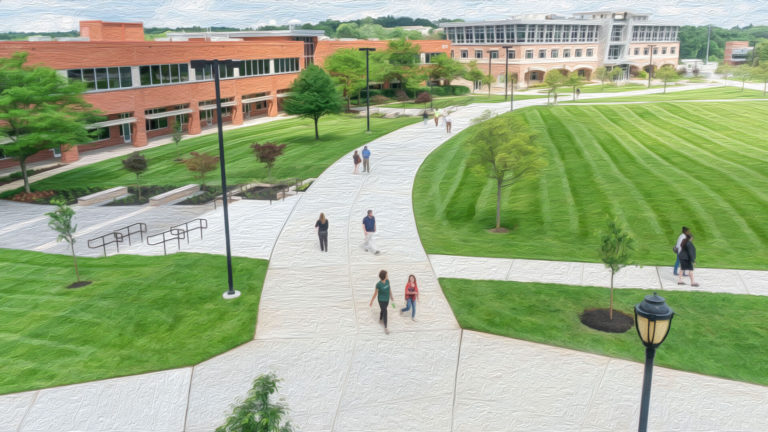
Stevenson University, a private university, provides undergraduate and graduate students a career-focused education.
The online Master of Science in Forensic Studies program prepares students to perform investigations and evaluate evidence to provide their findings in legal proceedings as experts in forensic accounting or digital forensics.
Credit requirements: 36
Selection of required courses:
- Foundations of Justice
- Evidence
- Forensic Journal Research and Review
- Investigative Techniques/Interviewing
- Investigative Techniques/Physical Evidence
- Mock Trial Capstone
- Five Elective Courses
Learning enrollment options: Full-time or part-time
Program length: On average, students finish in two to three semesters
Start dates: summer, fall, and spring (actual dates vary by course)
Admissions and transfer credit information:
Candidates must complete the online application form and provide official transcript(s) from all previous accredited colleges and or universities. Candidates must have a bachelor's degree from an accredited college and or university with a GPA of 3.0 or greater.
Candidates must provide a personal statement expressing academic and career goals.
Transfer applicants can transfer up to, but not exceeding, six-credit hours from a four-year institution.
Accreditation: The Stevenson University Online forensic program has accreditation from the National Accrediting Agency for Clinical Laboratory Sciences. Stevenson University has accreditation from the Commission on Higher Education.
DeSales University
Center Valley, Pennsylvania

DeSales University, a private Catholic University with a Salesian mission, offers a variety of undergraduate and graduate degrees.
The online Master of Criminal Justice with an Investigative Forensics concentration utilizes science to address legal issues in criminal investigations, with a focus on violent crimes. Students learn how forensic professionals collect and process evidence in crime scene investigations.
Credit requirements: 30 credits
Concentration Courses:
- Advanced Crime Scene Investigation
- Behavioral Criminology
- Forensic Anthropology
- Forensic Psychology
- Forensic Science in the Courtroom
- Forensic Toxicology
- Medicolegal Investigation and Identification
Students can take the courses full-time or part-time.
Admissions and transfer credit information: Candidates need a bachelor's from a college or university with accreditation from a regional accrediting organization and a background or interest in the criminal justice field.
DeSales University has accreditation from the Middle States Commission on Higher Education.
What is the highest paid job in forensics?
Salaries can vary depending on experience and level of education. Here are a number of high paying jobs:
- Forensic Pathologists make an average national salary of $177,686 per year.
- Digital Forensic Examiners make $96,785 for the national average salary. They are responsible for extracting, analyzing, and presenting digital evidence from computers, mobile devices, and other digital storage media.
- Forensic Medical Examiners make an average median salary of $96,133.
- Forensic Engineers make an average salary nationally of $89,306 per year.
- DNA Analysts make an average national salary of $57,173 per year.
- Crime lab analyst: average national salary of $61,739 per year.
What Does a Forensic Science Technician do?
A forensic science technician conducts laboratory analysis and interprets physical evidence found at crime scenes or during investigations using scientific methods. DNA analysis, fingerprint analysis, ballistics analysis, and toxicology testing are among the techniques they use to analyze evidence. They usually work in a laboratory.
A forensic analyst might be employed by forensic laboratories, a criminal justice organization, or other law enforcement agencies.
What degree do Forensic Science Technicians need?
The minimum level of education required is usually an associate degree in forensic science or a related subject. However, many employers prefer applicants with a bachelor's degree in forensic science, biology, chemistry, or a related subject. Some entry-level positions may only require a high school diploma or equivalent, but these positions often involve more limited tasks such as evidence processing, and not analysis of evidence.
The level of education required for forensic science technicians can vary depending on the employer, the type of job, and the level of responsibility. It's recommended to have some experience in forensic science laboratories, coursework in the natural sciences, and some computer and math skills.
Some forensic scientist technicians may choose to obtain certifications in specific areas of forensics, such as crime scene investigation. This can help demonstrate their expertise and increase their chances of employment.
Frequently Asked Questions
What Is Forensic Science?
Forensic science utilizes science to aid in law enforcement. Forensic scientists and forensic science technicians work to provide unbiased, impartial, scientific evidence professionals can use in courts and investigations.
Forensic science, a multidisciplinary field, utilizes information acquired from a wide array of fields and disciplines such as chemistry, physics, biology, psychology, information technology, geology, as well as the social sciences.
Forensic scientists primarily work in crime laboratories. A crime laboratory typically includes units such as a Physical Science unit, a Biology unit, a Firearms unit, a Document unit, and a Photographic unit. A crime laboratory may provide additional services such as fingerprint analysis, voiceprint analysis, toxicology, and evidence collection.
What Do Forensic Scientists Do?
A forensic scientist performs tests and evaluates evidence and provides reports and/or expert testimony in a court of law. Many are employed in crime laboratories, some of them may collect evidence at crime scenes. For example, a forensic chemist evaluates non-biological evidence discovered at crime scenes to identify unknown materials and match samples to known substances. A forensic biologist typically specializes in DNA analysis. A forensic geologist provides soil analysis to crime investigations.
How do you become a Forensic Scientist?
Scientists typically need a bachelor's degree, such as forensic science or a science degree including chemistry, biology, and physics. There are many forensic science degree programs available. If you want to become a Crime Scene Investigator, it would perhaps be beneficial to get a degree in an investigative sciences program, such as Crime Scene Investigation. Students may also want to take courses in math, statistics, biostatistics, genetics, and general and organic chemistry, as well as courses which provide writing skills.
What Do You Study in a Forensic Science Program?
Forensic science students can study the following fields:
- Ballistics
- Chemical Trace Evidence
- Computer Forensic Examination
- Criminalistics
- Criminal Investigation
- Digital & Multimedia Sciences
- DNA Profiling
- Drug Analysis
- Facial Identification
- Fingerprints
- Firearms and Toolmarks
- Fire Debris & Explosives Analysis
- Forensic Anthropology
- Forensic Biology
- Molecular biology
What Are Some Forensic Science Careers?
Many scientists work in forensic science crime laboratories. The United States, has over 4000 crime laboratories administered by federal, state, or local governments or private industry. Many crime laboratories employ scientists in the areas of forensic chemistry, forensic biology and criminalistics. They often perform this work in close collaboration with law enforcement agencies.
Forensic Pathologists do autopsies on victims to assess the reason for dying. Forensic Science Technicians work in crime labs analyzing the evidence collected from crime scenes. Forensic Toxicologists look at the chemistry of people who have passed away to assess the use of chemicals, drugs, or poisons. Crime scene investigation involves determining what happened in the crime. Crime scene investigators will collect evidence, analyze physical evidence, including trace evidence analysis.
DNA Analysts help to analyze and connect DNA evidence to crime suspects. Here are some forensic science careers outside of the crime laboratory: Forensic Anthropology, Forensic Engineering, Forensic Entomology, Forensic Odontology, Forensic Pathology, and Forensic Psychiatry.
What Government Agencies Hire Forensic Scientists?
Government agencies that hire include the Bureau of Alcohol, Tobacco, Firearms, and Explosives, Federal Bureau of Investigation, Drug Enforcement Administration, Armed Forces DNA Identification Laboratory, U.S. Department of Justice, Central Intelligence Agency, U.S. Secret Service, U.S. Postal Inspection Service Headquarters, State Crime Labs/State Police Departments, Coroner Offices, Medical Examiner Offices, and Law Enforcement Offices.
Do Law Enforcement Officers or Federal Agents Need To Have a Forensic Science Degree?
Typically no. Most law enforcement agencies at the local, state, or federal levels require a four-year degree of some type, but not specifically a forensic science degree.
What are Major Forensic Science Certifications?
The major Forensic Science Certifications are the American Board of Forensic Document Examiners, which offers the Forensic Document Examiner certification, The American Board of Forensic Toxicology provides a certification program in forensic toxicology, The American Board of Criminalistics provides certification, The International Association for Identification offers several certifications, and Forensic Science Technicians.
What Are Some Forensic Science Agencies?
Professional organizations in Forensic Science include:
- American Academy of Forensic Sciences
- Society of Forensic Toxicologists, Inc.
- American Forensic Association
- American Board of Criminalists
- Chartered Society of Forensic Sciences
- International Association of Computer Investigative Specialists
- International Society of Forensic Computer Examiners
- International Association of Identification
More resources:
- The Best Online Bachelor's in Forensic Psychology Degree Programs
- The Best Online Forensic Psychology Master's Programs
- The Best Online Master's in Forensic Science Degree Programs
- The United States Department of Justice - Forensic Science
- The Best College Degrees for Fighting Human Trafficking
- The Best Universities Fighting Human Trafficking
- The Best Online Social Justice Degrees
- Criminal Justice Degree: The 50 Best Programs
- The Best Online Criminal Justice Schools
- The Best Digital Forensics Master's Degrees Online
- The Best Graduate Criminology Programs
- How To Become A Forensic Scientist - FAQs Answered
